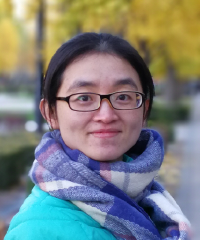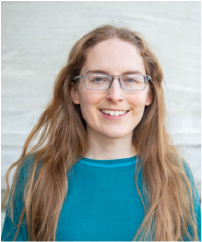2023-2024 Robin Reed Fellows
Jingjing Gao, Ph.D.
Shao Lab
Maintaining protein homeostasis is fundamental to healthy aging. In a typical cell, millions of new proteins are synthesized every minute. For proper function, nascent proteins must go through complex biosynthetic processes, including folding into the correct structure, integrating into the appropriate complexes, and localizing to different parts of the cell. Failure at any step can lead to proteotoxicity linked to many aging and neurodegenerative diseases. My research focuses on underexplored mechanisms that facilitate and scrutinize the assembly of membrane-embedded protein complexes. I am using single-particle cryo-EM and proteomics to understand how organellar protein quality control complexes recognize and engage substrates directly and through the use of adaptor proteins.
Frances Hundley, Ph.D.
Harper Lab
Endocytic trafficking regulates the cell surface abundance of roughly a quarter of the human proteome and plays a key role in cellular homeostasis, including fundamental processes such as cell growth, nutrient uptake, cell adhesion, cell motility, and extracellular signaling. Recycling of endocytosed cargo proteins back to the plasma membrane by diverting them from lysosomal degradation is regulated in large part by the endosomal sorting complexes Retromer and Commander, whose dysregulation has been linked to several neurological diseases. My research in the Harper lab, in collaboration with the Gygi lab, aims to develop and employ sub-cellular proteomic methods (such as Endo-IP) combined with genetic and cell biological approaches to gain a greater understanding of how endocytic cargo recycling is regulated and how this process is perturbed by disease-associated mutations of Retromer and Commander.

